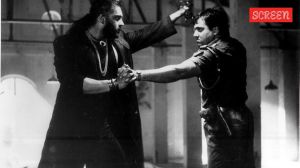Patil calls off hunger strike: A sigh of relief for now and a daunting task ahead for govt
The terms and conditions imposed by Jarange Patil on the government including implementation of Maratha reservation within next two months is going to be a daunting task.
 Quota activist Manoj Jarange Patil
Quota activist Manoj Jarange Patil More than two months the after the demand for Maratha reservation gained momentum and subsequently the protests intensified across Maharashtra, the state government on Thursday heaved a sigh of relief as quota activist Manoj Jarange Patil announced the decision to withdraw the hunger strike.
However, for the Ekanth Shinde-led government it is just a temporary reprieve.
The terms and conditions imposed by Jarange Patil on the government including implementation of Maratha reservation within next two months is going to be a daunting task.
The big question which remains unexplained is how will the state government establish the social backwardness of the Maratha community within January 2, 2024 — the deadline given by Jarange Patil.
Any attempt to issue “kunbi” certificates to Marathas across the state to facilitate them to avail OBC reservation is bound to have larger political ramifications.
The OBC organisations are not going to accept the inclusion of Marathas within the OBC category.
Growing support
In a candid admission, a senior BJP functionary said, “ Our first priority was to persuade Jarange Patil to withdraw the protest. The hunger strike has evoked sharp reactions across the state. With each passing day, the movement was getting stronger.”
As part of the protest, the Maratha activists had even put up posters banning the entry of politicians in their villages.
The growing support to Jarange Patil has led members of the ruling BJP, Shiv Sena (Shinde faction) and NCP (Ajit Pawar faction) to also take to streets to show solidarity with Jarange Patil.
From August 29 to November 2 — Jarange Patil twice brought the three party-coalition government led by Eknath Shinde, Deputy Chief Ministers Devendra Fadnavis and Ajit Pawar on its knees.
The first phase August 29 to September 14 was essentially restricted to eight districts of Marathwada – Beed, Latur, Chhatrapati Sambhajinagar (earlier Aurangabad), Dharashiv (earlier Osmanabad), Nanded, Jalna and Parbhani.
In the second phase, (October 25 to November 2) the protests spread beyond Marathwada region to Western Maharashtra, North Maharashtra and Konkan.
Interestingly, Vidarbha was the only region where Maratha protest did not gain ground.
Violent protests
Several factors are attributed to Jarange Patil to finally calling off the hunger strike.
The violence — including setting two NCP MLAs’ houses on fire in Beed district — dented the image of the pro-Maratha reservation protest.
The tough stand taken by the state government to impose IPC Section 307 ( charges for attempt to murder ) against the activists who indulged in violence put the protestors on back foot.
At the all-party meeting, convened by the chief minister Wednesday, there was a unanimous resolution adopted to support strong action against those behind the violence.
Simultaneously, Maratha Kranti Morcha (MKM) leaders started voicing their disappointment with violence that marred the protest.
The Mathadi Kamgar Union leader Narendra Patil said, “ My father Annasaheb Patil had laid down his life for Maratha reservation in 1982. So, I fully understand the anguish and pain of Marathas. While I fully support the reservation there cannot be justification to violence.”
Moreover, insiders within MKM also tried to reason with Jarange Patil not to stretch the protest beyond a point given the legal and constitutional complexities of the issue.
Breaking the deadlock
The state government had to engage the services of two retired judges Sunil B Shukre and M G Gaikwad to break the deadlock.
Gaikwad who shared cordial equations with Jarange Patil informed him of the legal hurdles in giving reservation. Gaikwad urged him to give some time to resolve these hindrances and not insist on a hurried decision on quota.
The legal experts reminded Patil how the 2018 decision to accord reservation under SEBC Act was challenged in Supreme Court and scrapped.
A senior cabinet minister who was part of the delegation said, “ A lot of backdoor discussions took place before Jarange Patil conceded to our demand. He was categorically told that police action against activists would amount to jeopardising their career. Secondly, his demand for kunbi certificates to the entire Maratha community would have to be backed with proper documentation.”
OBC leader Haribhau Rathod said, “The state government should take the opportunity to resolve the issue. All the kunbi-Marathas should be clubbed under one separate sub category and given a certain fixed quota within OBC head.”
This way the existing OBC quota will not be affected and Maratha-kunbi will also be entitled to benefits extended under the OBC quota, he added.
However, Rastriya OBC Mahasangh president Babanrao Taywade argues, “Unless social backwardness of the Maratha community is established the reservation will not withstand legal scrutiny.”







